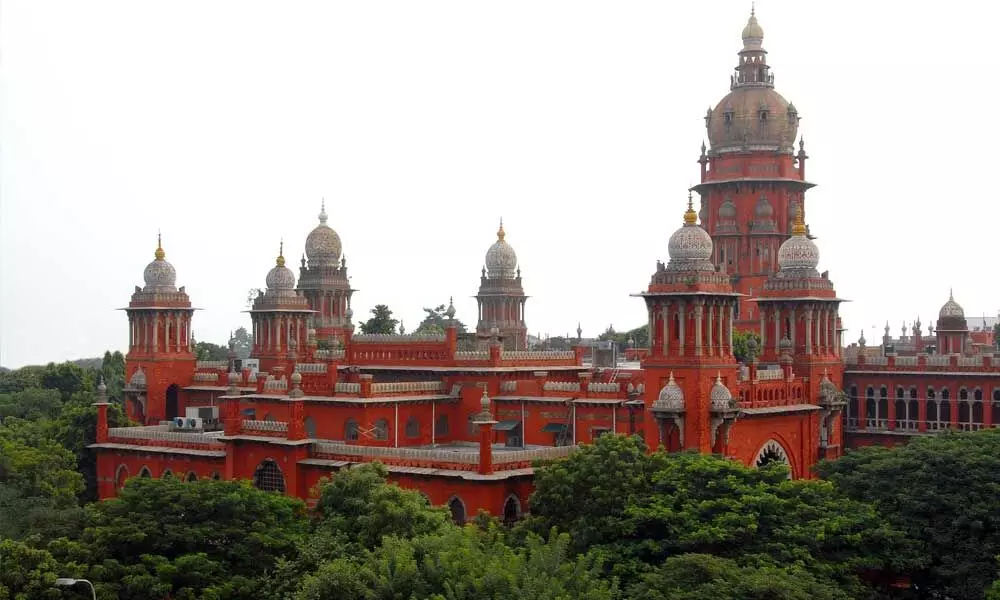Rskj–The Madras High Court on Friday junked a plea to stop a temple practice of breaking coconuts on heads of devotees and made it clear religious beliefs cannot be easily disturbed by the diktat of courts except in the manner known to law. Justice R Suresh Kumar of the Madurai bench of the High Court, dismissed the petition by representatives of Mannai Telugu Chettiar community, seeking a direction to authorities not to allow the ritual performed during the annual Aadi festival at the Mahalakshmi Amman temple in Karur during July-August.

Madras HC rejects plea against ritual of breaking coconuts on devotees’ heads in TN temple
PTI | 29 May 2020 9:41 PM IST
 Madras High Court
Madras High CourtChennai: The Madras High Court on Friday junked a plea to stop a temple practice of breaking coconuts on heads of devotees and made it clear religious beliefs cannot be easily disturbed by the diktat of courts except in the manner known to law. Justice R Suresh Kumar of the Madurai bench of the High Court, dismissed the petition by representatives of Mannai Telugu Chettiar community, seeking a direction to authorities not to allow the ritual performed during the annual Aadi festival at the Mahalakshmi Amman temple in Karur during July-August.
Also Read – We’ll deal Ladakh standoff with China: India to US
“Freedom of religion in our Constitution, as per the dictum of the Supreme Court, extends not only to religious beliefs but also to religious practices, of course, subject to restrictions under Article 26 of the Constitution (related to freedom to manage religious affairs). “… religious freedom as provided under Article 26 can only be restricted on the grounds of public order, morality and health,” the judge said. With regard to the case in hand, Justice Suresh Kumar said the custom or tradition or pooja or performances being adopted, performed or conducted for several decades, several centuries or from time immemorial cannot be considered to be against public order or morality or to be injurious to health. Moreover, he said, none of the devotees has made any complaint that they had been compulsorily subjected to such kind of practice.
Also Read – Supreme Court Allows Sale Of Liquor In Tamil Nadu, Stays HC Order
The devotees voluntarily come to the temple and in order to fulfil their vow, they subject themselves to the temple authorities for performing the ritual of breaking or smasing the coconut on their head. Except one or two cases, he said, where they sustain some minor injuries, most of the devotees perform this ritual with their fulfillment and satisfaction.
![[11/16, 07:01] Sekarreporter 1: பதவி உயர்வு வழங்க வணிகவரித்துறையில் புதிய சீனியாரிட்டி பட்டியல்! -தமிழக அரசுக்கு உயர் நிதிமன்றம் உத்தரவு! – https://www.nakkheeran.in/24-by-7-news/thamizhagam/new-seniority-list-business-tax-offer-promotion-high-court-orders-tamil [11/16, 07:02] Sekarreporter 1: Cj bench order](https://sekarreporter.com/wp-content/themes/hueman/assets/front/img/thumb-medium-empty.png)

